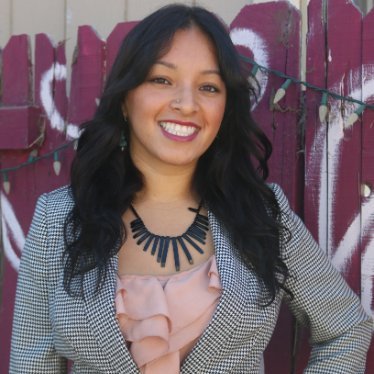Growing up, my Dad used to always tell me, in his strictest Spanish, “si no se levantan, van a recoger botes de basura como yo.” “If you don’t get up and go to school, you will end up picking cans out of the trash like me.” My Mom is a housekeeper at a hotel in San Francisco. My Dad always took whatever jobs he could find: bus boy, security guard, and now, janitor. Their work ethic continues to inspire me. Though we were poor, I was rich because I had the support and encouragement of my parents. This motivated me to seek every opportunity to pursue higher education. I was awarded a Gates Millennium Scholarship, and with 100 percent funding, I was able to attend Mills College in Oakland. Today, I am one of only 14% of Latinos nationwide to earn a college degree.
I was born in Mexico but grew up in San Francisco’s Third Street housing projects. During college, my family moved to a single family residence in Richmond. We had finally found home. I became an intern for the City of Richmond, where I observed City Council meetings that often ended in shouting matches.

My dream was to make my city, the City of Richmond, a safer, healthier place to live. After college, I joined the domestic arm of the Peace Corps, AmeriCorps VISTA. As a VISTA, I noticed that decisions were being made without sufficient input from the community. At the time, I didn’t have the confidence to sit at the table and participate with the decision makers. I wanted to be at that table, but I didn’t know how.
That’s when I found Coro. Coro is where 12 different Fellows, from 12 different backgrounds, representing 12 points of view, practice being at the table together. For the first time in my life, Coro challenged me to bring my voice to the table. One day during a seminar, we divided our cohort into two groups to work on different pieces of a project, the results of which would affect the group for the rest of the year. We raised our hands to choose the group we wanted to be in. I picked a group but felt uncertain in my choice. Another Fellow noticed my uncertainty. He suggested that I leave the group to join the other. Even though he was well-intentioned, his suggestion sparked a reaction in me. It reminded me of all the times people have been excluded from the tables where decisions are made. At that moment, I realized that if I want to represent the needs of my community on issues that matter to me, then I have to be ready to take a seat at the decision making table – even if no seat is being offered. So I decided not to move.
Upon completion of the project, we discussed the dynamic that had arisen. My fellow classmates and I realized the importance of encouraging and inviting others to the table – those who represent realities and backgrounds different from our own. It is when we leverage diversity of experience that we move from ordinary to extraordinary solutions. I came to Coro to become a leader who will make a difference in my hometown – and today, I am doing just that.